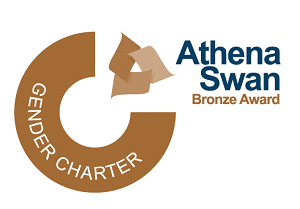Biography
Mary Corcoran was awarded her PhD in Criminology from Liverpool John Moores University (2004). She was Lecturer at Liverpool JM University and Bath University prior to her appointment as Lecturer in Criminology at Keele in 2005. Mary was promoted to Senior Lecturer (2014), Reader (2019) and Professor (2021).
Mary is a Criminologist with an international reputation in the fields of political imprisonment, women in custody, the voluntary sector and justice, and marketisation in criminal justice domains. She conducts research which advances theoretical challenges to societal reliance on imprisonment, and works extensively with civil society and public organisations to find applied, humanitarian responses to harms arising from crime and punishment.
Research and scholarship
Mary Corcoran’s theoretical and empirical work addresses two societal problems: The first is how to reduce society’s excessive reliance on imprisonment by developing approaches, thinking and practices for creating humanitarian alternatives to prison, and supporting people to live settled lives free from conflict with the criminal justice system. These questions contribute to ‘real world’ co-productive research and problem-solving with those directly affected by crime and imprisonment. Her research on imprisonment and community punishment, with particular reference to minoritised prisoner groups (political prisoners; women; older prisoners; bereaved prisoners), has informed the design of gender-responsive and community-based services. This work encompasses several collaborations with academics and practitioners from palliative care, nursing, law, ethics, and prison and probation service personnel.
Her second theme focuses on the voluntary sector/NGOs in criminal justice. That work critically engages with the ethics, practices, experiences and politics of for-profit and voluntary sector involvement in penal spheres. Mary has worked with small, national and international charities and NGOs. One strand of this research relates to concerns with the marketisation and regulation of civic social work and voluntary activism, leading to work on possible implications for de-democratising justice systems. In answer, She is currently working with colleagues at Glasgow and Strathclyde Universities to develop concepts, practices and methods relating to ‘generative justice’. This involves working with justice-affected people to generate social relationships and solidarity weakened by crime and by criminal justice processes by placing recognition, redistribution and representation at the heart of rebuilding societal relationships and sustainable modes of doing justice.
Mary has contributed her expertise as speaker, advisor, and board member to the work of major charities, government departments, trade unions and research institutes. She has contributed to strategic thinking at local government level as Chair of the Community Safety Partnership in Bath and North East Somerset, and advisor to the Staffordshire Police and Crime Commissioner. Mary serves on the academic advisory boards for the Probation Institute for England and Wales, and for two charities, as well as advising government departments and international NGOs. She is also a member of editorial advisory boards for academic journals.
Funded research projects
- 2022 ‘Generative Justice: Exploring how communities re/create solidarity after crime and punishment’, Independent Social Research Foundation. (£4,890).
- 2017-18; Making the connection: linking classroom-based with work-related learning by Criminology students. Higher Education Funding Council for England. (£49,980).
- 2017-18: Bereavement and loss among children and young people in custody. Barrow Cadbury Trust. (£21,254).
- 2015-17 Principal Investigator, Voluntary sector adaptation and resilience in the mixed economy of resettlement in England and Wales. Leverhulme Trust research grant. (£161,064).
- April 2013-August 2014: Principal Investigator, Youth in Focus ‘Sisters’ Mentoring Project Spurgeon’s and The Big Lottery. (£34,963).
- 2013-14. The Staffordshire Integrated Offender Management Programme 2013. (Staffordshire Police. (£25,649)
- 2011-24: Principal Investigator, The voluntary sector role in promoting desistance through offender mentoring PhD CASE Studentship. Economic and Social Research Council (ESRC). (£31,430).
- 2011-12: The role of the Magistracy in the 21st century. Magistrates’ Association. (£5,994).
- 2010-2012: The third sector role in criminal justice 2010. Economic and Social Research Council (ESRC) research seminar series. (£15,700).
- 2010-11: Principal Investigator, Evaluation of Chepstow House Community Project for Women Offenders, Brighter Futures. (£9,395).
- 2006. Principal Investigator, Peer Mentoring in Prisons in England and Wales: The Listener Programme (studentship) Samaritans. (£42,000).
Teaching
I have taught widely across general Criminological curriculum, but specialise in teaching on penal theory; prisons and penality; ethics and penal research; criminal justice occupational cultures; and employability. I also conduct research on pedagogic practice, especially on the translation of Criminological knowledge from university to practice settings. This work has been recognised for its contribution to excellence in teaching with a prestigious Higher Education Funding Council for England (HEFCE) Catalyst grant for the project, Making the connection (2017), a qualitative, systematic study into how or whether Criminology students translate their academic learning into work-based experiences.
Postgraduate:
Research methodologies.
Advanced Topics in Criminal Justice.
Undergraduate:
Punishment and Penal theory
Prisons and Imprisonment.
Working for Justice
Publications
Postgraduate supervision
I have supervised eight PhD students to successful completion. Currently, I supervise doctoral projects; on transgender and imprisonment
Completed doctorates
(2023) Collett, Nicola: ‘Constructing and maintaining a ‘non-criminal’ identity: a psychosocial narrative inquiry into the lives of people
2018 (6 July) Robyn Emerton. Transgender Prisoners: Law, Prison Administration and the Emerging Tension Between Human Rights and Risk (Associate Supervisor).
2017 (21 June) Andrew Henley: The legal rehabilitation of people with criminal convictions in England and Wales: a critical history of the present (Lead Supervisor).
2016 (22 June) Gillian Buck: Peer mentoring and the role of the voluntary sector in [re]producing ‘desistance’: identity, agency, values, change and power (Lead Supervisor).
2014 (3 December) Kelly Prince: More than a ‘Rescue Industry’? Experiences of working in the anti-trafficking voluntary and community sector (Associate Supervisor).
2015 (6 July) Adam Snow: Understanding the experience, meaning and messages of on-the-spot penalties (Associate Supervisor).
2012 (5 December) Michelle Jaffe: Peer Support and seeking help in prison: A study of the Listener scheme in four prisons in England (Lead Supervisor).
2009 (7 October) Adam Calverley: An Exploratory Investigation into the Process of Desistance amongst Minority Ethnic Offenders (Associate Supervisor).
School of Social Sciences
Chancellor's Building CBA1.039
Keele University
Staffordshire, ST5 5BG
Tel: +44 (0) 1782 734346
Undergraduate and postgraduate enquiries
Tel: +44 (0) 1782 734346
Email: socialsciences.office@keele.ac.uk



